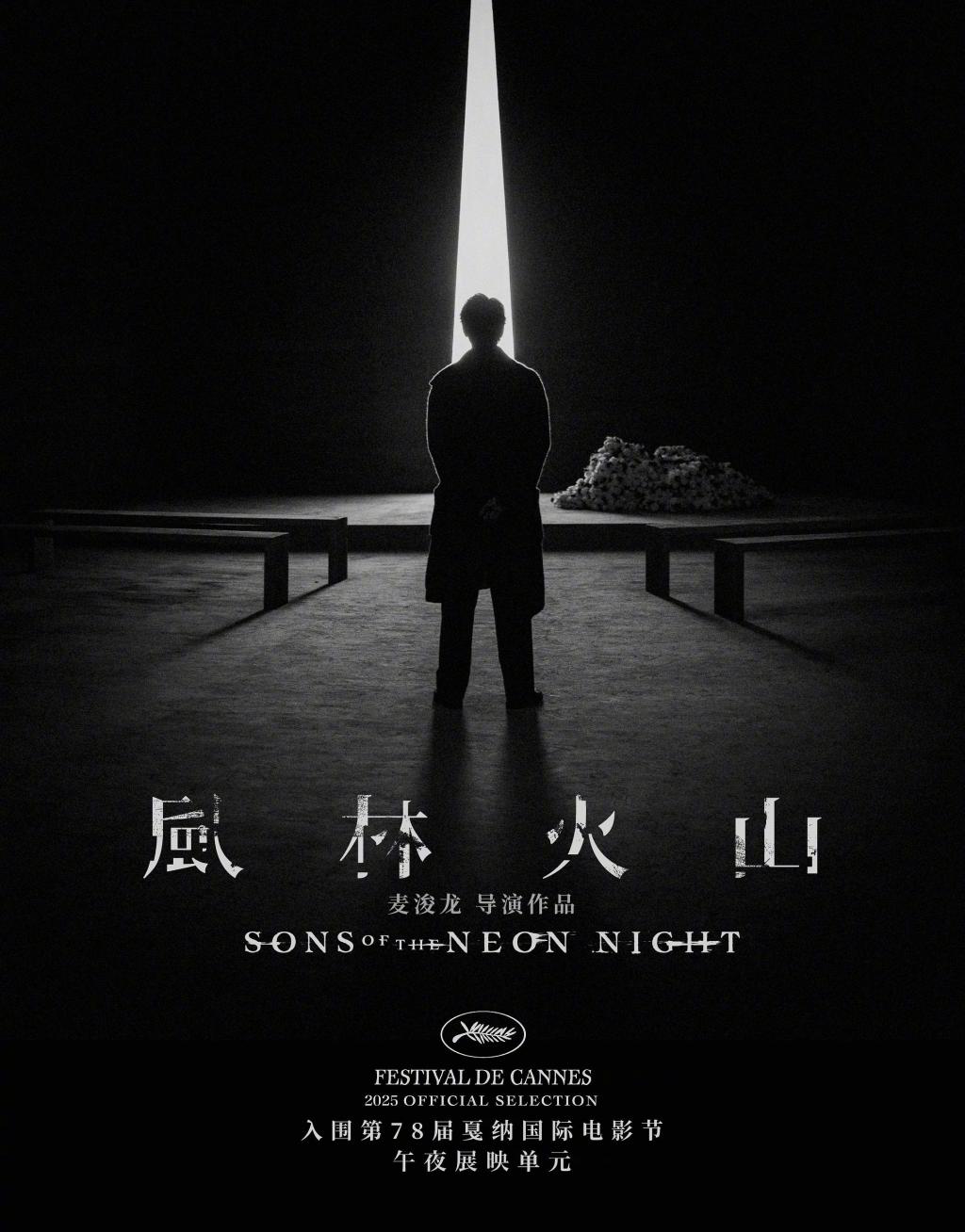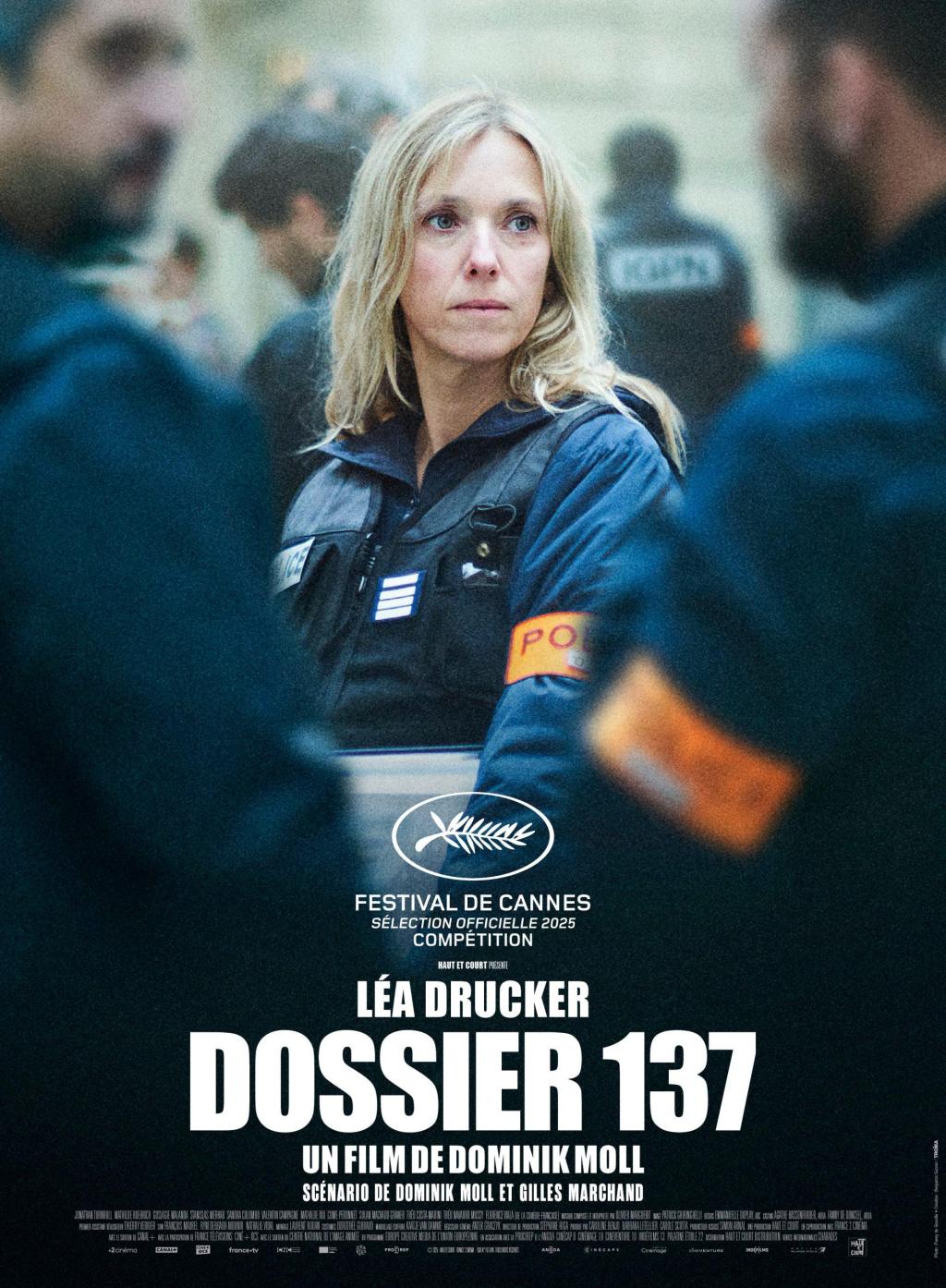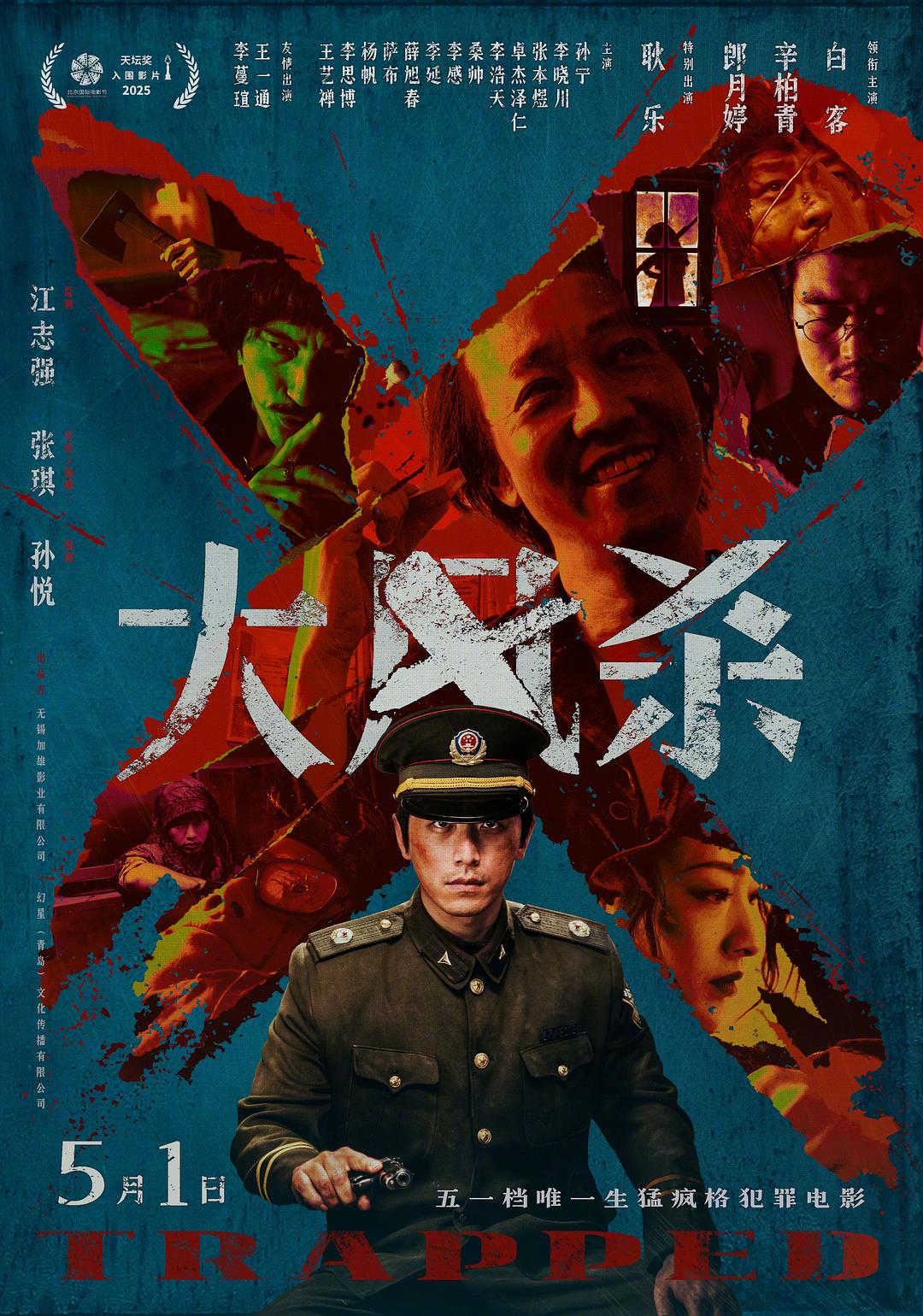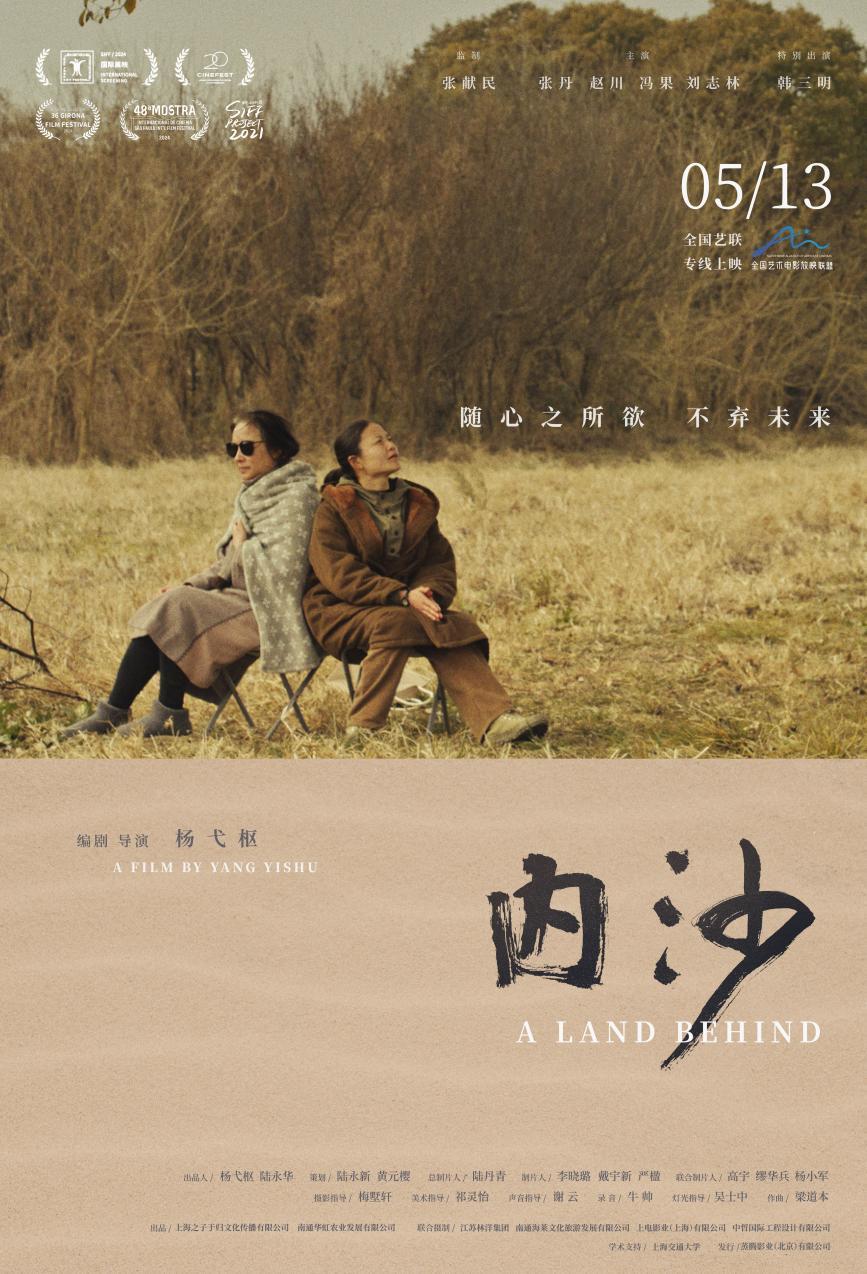
At the mouth of the Yangtze River, on an island formed by quicksand, a young woman named Xiao Yu was inspired by the idealism of the farmer, Mr. Tang, and took root here with her passion for organic farming. But fate always seemed to like playing tricks on her, and Xiao Yu had to re-measure the distance between herself and reality. When the story was about to be forgotten by time, a caring person brought it to the big screen.
The art film "Inner Sand", directed by the famous female director Yang Yishu and supervised by Professor Zhang Xianmin of the Beijing Film Academy, has been screened on the National Art Film Screening Alliance since May 13. The film had its international premiere in the Chinese New Style Unit of the 26th Shanghai International Film Festival, and was shortlisted for several film festivals in succession, winning the attention of domestic and international film festivals with its unique artistic perspective and humanistic care.
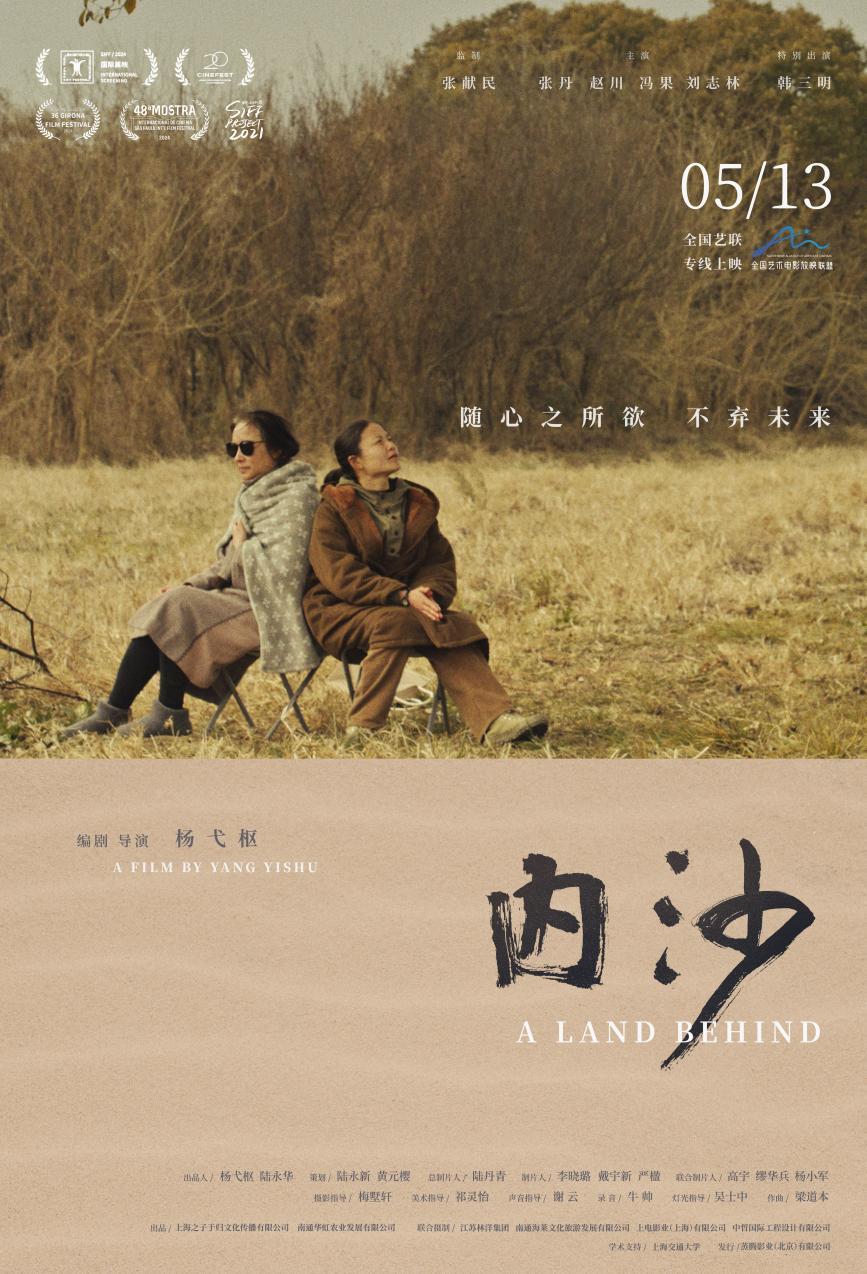
Nesha poster
"Inside Sand" is a film with regional characteristics, and also a love letter to those who are looking for poetic dwellers in reality. It uses a nearly plain narrative technique to hide the emotional undercurrents of the characters under the calm daily life, and uses poetic images and surreal fragments to point directly to the siltation and struggle of the river of modern people's lives.
Director Yang Yishu is currently a professor and dean of the Film and Television Department of the School of Media and Communication at Shanghai Jiao Tong University. She is an amphibious filmmaker who straddles both academic and creative fields. From the early documentary "Who is Haoran", to the feature films "One Summer" and "Zi Zi Yu Gui", to the current "Neisha", they all reflect her thoughts and feelings about the reality of Chinese society at different times. Her rich and solid academic and humanistic background allows her to follow the essential laws of images while using sociological and anthropological perspectives to depict a touch of afterglow belonging to idealists.

Director Yang Yishu
During the release of the film, Yang Yishu accepted an exclusive interview with The Paper, talking about his bold experiments with "organic" and his thoughts and practices on creation and the times along the way.
【dialogue】
Are we “organic”?
The Paper: We have the impression that Shanghai is a city that is far away from agriculture. How did you notice this aspect?
Yang Yishu: In fact, there are large and small agricultural ecological bases around a city. I may have a good affinity with agriculture. After I moved to Minhang, I found that when I walked across a big road near my residence, there were vegetable bases planted in greenhouses across the street. There are some open spaces along the river next to the community, and residents also plant various vegetables there. Agriculture is not far away from us. It is related to our lives and our three meals a day.
Indeed, in our impression, Shanghai is a highly modernized city. I paid attention to the relationship between Shanghai and agriculture when I was looking for organic farms. I learned that Chongming Island is the "vegetable basket" of Shanghai. It has an agricultural method that relies on mechanization, pesticides, fertilizers and other modern technologies to ensure basic production. At the same time, there are many local and foreign experimental organic agricultural practitioners.
Cities are the terminals of agriculture, and urban residents are the consumers of agriculture. There are various channels that connect rural areas to the lives of cities. For example, in supermarkets, people just buy vegetables and may not think about where they come from. There are also some forms of organic agriculture that I shoot. These organic agricultural practitioners will promote organic concepts to their end users through cultural activities.
Maybe because I am interested in this topic, I often see "farm"-style restaurants when I walk on the street, and I see various information related to organic agriculture in the city.

Stills from Nesha
The Paper: The agriculture mentioned in the movie is only a small part of "organic". What is the larger concept of "organic"? Are you also a practitioner of this approach?
Yang Yishu: Indeed, organic agriculture is just a carrier of "organic". "Organic" also has many forms, including the organic nature of various scenes in our lives, such as the ideal personality state called for by Gramsci's "organic intellectuals".
For me, "organic" is a keyword that I often ask myself and reflect on. For example, in the era of involution, we are often forced to do many things, and we don't even know why we do them. At this time, I will think outside the box, is this "organic"? When we encounter problems on the set of a movie and need to solve them, everyone will think of various ways, and eventually they will return to the principle of "Are we 'organic'?"
For non-agricultural practitioners, "organic" of course goes beyond agriculture and radiates to all aspects of life, and can be used as a key concept for self-reflection. Some people think that "organic" is higher than ordinary life or is too highbrow, and even turn it into a high-end lifestyle. I think this is precisely not organic.
In fact, organic is like reducing pesticides in agriculture, not using pesticides and chemical fertilizers, and letting plants grow naturally. It may produce original and natural fruits, or it may produce strange fruits due to congenital defects, insufficient nutrition or bad environment. These are all the results of organic. It is not as bright, beautiful and consistent as industrial mass production. It also includes the concept of letting weeds grow wild in the fields and allowing pests and beneficial insects to coexist, because if pests are killed, beneficial insects will also die. Therefore, organic is not about purifying something, but about making all ecosystems more harmonious and having proper self-circulation.
"Scholar Films" capture the ideal state of women
The Paper: The leading actress is not a professional actor. How did you accomplish the long shot of the emotional crying scene in the film?
Yang Yishu: The actors selected this time have very different backgrounds. They come from four completely different backgrounds, and their daily life states and ways are very different. For example, A Dan, who plays the heroine Xiao Yu, has never done any related work. She is a volunteer who has been doing rural construction and ancient building protection work in a hollow village for ten years. Therefore, her emotional state and understanding of things are very similar to Xiao Yu in the film. Therefore, there is no need to explain the character to her too much, she can quickly understand and get into the role.
Adan has no acting experience and needs to undergo rigorous training for each scene and perform strictly according to the lines in the script. When communicating with her, I will tell her the complete background of the character in the plot and the current situation, and she can quickly understand and express her emotions.
In the end, she completely transformed herself into Xiao Yu, and her actions on the farm and her relationships with others all naturally reflected Xiao Yu's own state. During the filming on Chongming Island for a period of time, the accumulated emotions and feelings allowed her to naturally enter the role. When filming the emotionally full crying scene, the situation made everyone immersed in the same emotions as in the film. For example, the scene where she cried next to Teacher Tang was actually filmed several times. We also cut out a scene where she talked about her family and parents' past experiences. I remember that she was still immersed in her emotions and continued to cry when she walked out of the camera.

The mother played by Feng Guo and Xiao Yu played by A Dan
The Paper: As a scholar-director, how does theoretical research influence your creative methodology?
Yang Yishu: When I was making a movie, I was thinking purely in terms of narrative and images, but I think there might often be some theoretical thinking behind my narrative. This may be that my academic background was unconsciously projected onto my creation.
Just like the thinking about space in "The Return of the Son", the application of space theory seems to be naturally put into it. Including my interest in psychoanalysis, it will also be reflected in the creation. Behind the social issues related to the creation, there is a lot of field work to support it. This is like the film "Inner Sand" about organic agriculture. I did a lot of field research and participated in many discussions. After that, I integrated these key issues that are closely related to the plot and related to current organic agriculture as harmoniously as possible.
But in the plot, the core is the emotional state of the characters, followed by space, images, etc. The social information must be subconscious and unconscious under the picture. Until my recent road show, the academic part may have played a greater role than my creation. Because the people I communicate with are usually scholars, they may be more able to understand some of the issues I think about, and the frequency of communication is relatively consistent.
The Paper: Feminism is an issue that you have been concerned about for a long time. The women in the movie, Xiao Yu's mother and daughter, including his ex-wife, and the farm staff, what kind of observations do they reflect about women of different ages and classes in today's society?
Yang Yishu: The three female characters in the movie each represent a different state. I personally think that they all represent an ideal female state.
As a young woman, Xiao Yu is very persistent and has a career she loves. At critical moments, she does not follow a person, but questions the career she is engaged in. She devotes herself wholeheartedly when she should, and makes choices without hesitation after seeing the reality. She is clear about her direction, which is an ideal state for a young woman.
Mr. Tang's wife is affectionate, has spiritual pursuits, and is engaged in writing. When Mr. Tang faced a huge dilemma, she put aside her past grudges and tried to help him solve the dilemma. She was willing to give up her own house and asked Xiao Yu to convey a message to try to relieve his pressure. She is an ideal middle-aged woman.
Xiao Yu's mother had her own spiritual pursuits. In the end, she dared to let go of everything and stopped being a burden to her children. She pursued her own destination and found inner balance. She is an ideal state for a woman in her later years.
One big difference is that this time I used more space to present a male character. In my previous works, male characters may only appear in a few scenes as a small amount of space or as an obstructive force, and the critical elements are relatively strong. In "Inner Sand", I think I am also sympathizing with and describing the situation of men in a way that sympathizes with women.
Retain what is lost and what will be lost
The Paper: From the creation of Who is Haoran to Neisha over the years, have your focus and topics of interest changed every time you choose a topic? How is this change related to your own growth and the changes in the larger social environment?
Yang Yishu: Indeed, looking back now, every one of my films is concerned with current social issues.
The first film, "Who is Haoran", although it presents the daily scenes of a group of active middle school students chasing and beating their classmates, what motivated me to make this film was the desire to record and observe the life and growth status of those teenagers with poor academic performance and mischievous behavior in the education system, and to record and observe the current education situation.
The second film, On the Road, is a documentary. I wanted to film truck drivers, a relatively low-level group of ordinary workers who travel across the country by truck. I wanted to observe the living conditions of this group. Later, when I made feature films, each film would focus on some issues in Chinese society at a certain period, with social issues as the background.
"One Summer" was filmed in 2013 and completed in 2014. At that time, we saw the direct impact of some judicial procedures on individuals, and there were many related incidents in social news. The film responded to this social issue and presented the situation in which individuals in society lose the unspoken rules and cannot understand the truth of the matter from positive and normal channels. They can only keep asking questions, and the truth told by each person is different.
The second feature film, "The Return of the Son", is about a time when print media began to decline and a large number of in-depth reporters left. The heroine is an in-depth reporter who is having difficulty adjusting her marriage and career. She went to the countryside to interview and try to track down an in-depth report on environmental pollution, but got lost in the countryside and encountered a "ghost wall", which is a metaphorical writing.
In Neisha, the main topic is about land. In the Jiangsu, Zhejiang and Shanghai regions, land has its own characteristics, such as the problem of land transfer. People who farm the land do not farm their own land, and villagers who have land do not farm the land themselves. The land is transferred out, and the agriculture and livelihood of the land determine the different living conditions of individuals. The land is also related to the fate of some families, such as the relationship between the heroine's family and the land. There are social issues behind my topics, which may be unconsciously related to my academic background in sociology.
The Paper: Speaking of the impact of changes in the times and society, you are also a film educator. Do you think the rapid advancement of technology in this era has brought an impact on the film industry and film education? Will the creation of "authorship" be affected?
Yang Yishu: Indeed, the rapid development of science and technology, especially short videos and AI, has had a significant impact on the film industry and film education. I have been particularly impressed by the roadshow recently, and the most common thing I hear is "too difficult". Almost all cinema practitioners and film viewing organizations are saying that it is too difficult. I have been to many cinemas and found that for current commercial blockbusters, in a hall with 200 to 300 people, only a few people may sit and watch the movie during prime time on weekends. The film industry is in the process of change.
The viewing mode of short videos has profoundly influenced the way contemporary people perceive and receive information. People may not be able to calm down and watch feature films. This experience and viewing method have undergone profound changes, which requires scholars to conduct more in-depth research. However, from my observations, I think this is a relatively serious common problem.
In school teaching, the content I teach also keeps pace with the times. On the one hand, I study short videos and social psychology, on the other hand, I teach artificial intelligence movies and use related software tools to create works. But I have no doubt that artistic expressions that deeply reach the human mind, although they may become increasingly rare and difficult to be truly seen, will definitely exist and provide connections for those who still seek deep thinking and can calm down to think about problems. We need to continue to provide works that can retain the beautiful things that will eventually be lost.
In addition, authorial creations still have irreplaceable value. I tried using AI and watching AI-generated content, and found that in this period, AI cannot replace creations that involve sincere emotions and deep thinking. Authorial creations rely on unique life experiences and values, which AI does not have.
